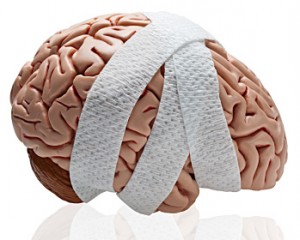- Free Consultation: 760-571-5500 Tap Here to Call Us
Carlsbad Resident Suffers Traumatic Brain Injury

Serious accidents and injuries can take place anywhere, and they often happen when we’re least expecting them. Depending on the type and severity of an injury, the consequences can be life-long. According to a recent article in U-T San Diego, a young Carlsbad man recently suffered a traumatic brain injury (TBI) while playing in a recreational softball league. While he’s currently in stable condition, doctors worry that he may not be able to fully recover.
A “Freak Accident” on the Softball Field
Less than a week ago, 28-year-old Mike Petracca had been in Las Vegas for a softball tournament. However, while he was walking across the softball fields, he sustained a TBI in what his coach referred to as “a freak accident.” While Petracca was walking between the fields, a “softball bat slipped from a player’s hands, flew like a rocket nearly 90 feet over a fence and struck Petracca in the head.”
After being struck in the head by the bat, Petracca fell and “hit his head on the asphalt.” Emergency medical responders rushed him to a nearby hospital, where doctors “determined he suffered a fractured skull and swelling of his brain.” As a result of the severe injury, Petracca underwent emergency surgery. However, post-surgery scans of his brain suggest that the region of his brain that controls speech (in the frontal lobe of one hemisphere of the brain, known as the Broca’s area) remains damaged. As such, Petracca has only been able to utter one full word since waking up after surgery.
Unfortunately, according to Petracca’s surgeon, the damage cannot be repaired with surgery. Instead, Petracca will need time to allow his brain to heal. However, there are no guarantees. According to the doctor, “he may regain speech in a day or two, or a year or two, or never.” In short, it’s impossible to predict the outcome of this severe head trauma.
Members of the LGBT sports community, of which Petracca is a part, have been generous in helping to fund Petracca’s recovering and in offering their support. He remains in stable condition, and doctors report that his motor skills continue to improve. Petracca’s medical team hopes that the facial paralysis he’s currently experiencing will heal with time. After he’s discharged from the hospital, he’ll continue treatment at a Southern California rehabilitation center.
Sports-Related Severe Brain Injuries
We often think about sports-related brain injuries in college or professional athletes, but they can happen to anyone. According to the Centers for Disease Control and Prevention (CDC), TBIs are contributing factors in about 30 percent of all injury-related deaths in the country.
While many sports-related TBIs are classified as concussions, or mild TBIs, these injuries can also be more severe. Two types of severe TBIs exist:
- Closed: where an injury to the brain was caused by the movement of the brain within the skull.
- Penetrating: where an injury to the brain resulted from a foreign object entering the skull.
In cases of severe head trauma, the effects can be long-term and life-altering. The CDC explains that, in the case of non-fatal severe TBIs, patients often report one of more of the following problems:
- Impaired cognitive function;
- Impaired motor function;
- Impaired sensation; and,
- Emotional changes, including depression, anxiety, and general personality shifts.
If you or a loved one has sustained a traumatic brain injury, you may be able to file a negligence claim. You should contact an experienced San Diego brain injury attorney to learn more about seeking compensation for your injuries.
See Related Blog Posts: Evaluating Concussions with Eye-Tracking Technology New California Law Aimed at Brain Injury Prevention









